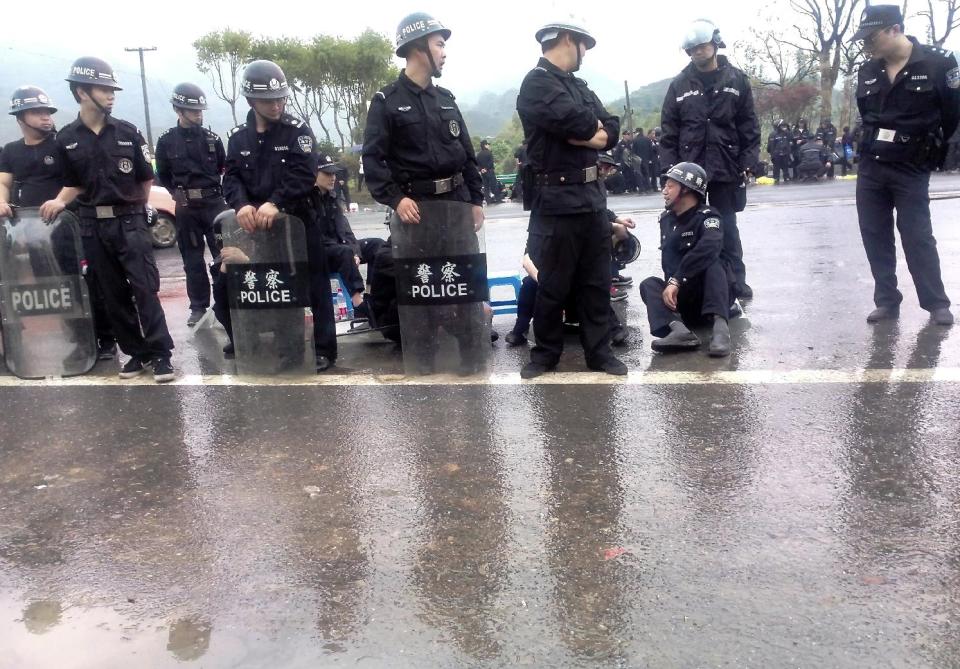China police arrest 60 in environmental protest
BEIJING (AP) — Police said Monday they detained 60 people following a protest over plans to build a waste incinerator in a city in eastern China, where neighbors expressed skepticism about official pledges to seek public approval before proceeding.
Officials repeated in state media that they would seek public support for the incinerator even as they pursued the arrests of more than a dozen people behind weekend protests in Hangzhou involving thousands of people. At least 10 demonstrators and 29 policemen were injured and protesters blocked a major highway.
Police in Hangzhou did not answer several phone calls seeking comment Monday, but said in statements that 53 people have been detained for criminal offenses ranging from vandalism to preventing the use of public property. Another seven people have been detained for "spreading rumors," the statements said.
One neighbor, who only identified himself as Micah for fear of being arrested, said several smaller protests broke out Monday, and that he and others would continue taking to the streets despite the government's promises.
"We just don't believe the government's words," the man said. "They said they would use European standards when they build the incinerator, but there's no way to trust them."
He added that people's suspicions spiked when they saw construction equipment being moved to the former Jiufeng mine site on the western edge of Hangzhou in the middle of the night in late April. He said the waste incinerator had been in the works since 2012, but the government had not offered any information to people living near the site.
Environmental concessions won by protesters in Maoming, nearby Ningbo and other Chinese cities helped inspire neighbors of the Hangzhou site, he said.
"It's not if we are brave enough or not to do this," he said. "It's just that we want a healthy environment."
Waste incinerators without proper emission filters can release the carcinogen dioxin, said Wu Yixiu, head of environmental group Greenpeace's toxics campaign in East Asia. Several neighbors of the Hangzhou site cited that risk and noted that incinerators in Germany were required to filter out the toxin.
The city now has to bury more than 5,000 tons of landfill waste, which exceeds the capacity of its existing incinerators, according to state-run Xinhua News Agency. The report also said local governments would invite waste incineration experts to address public concerns about the project and start a dialogue with "citizen representatives."
Wu said that starting such outreach at the project's launch would have prevented tensions from boiling over and possibly avoided the outbreak of street protests.
"I don't think this is a rational and reasonable way for the public and local government to handle this issue," she said. "This should have been discussed within a conference room where local people are invited where they can express their opinions rather than go to the street. Once it goes to street, the government is left with no choice."
With more Chinese challenging authorities on environmental worries, such protests are emerging as a rare, viable threat to official power, Wu said.
"Pollution affects people everywhere," she said. "With political issues or economic issues, it's much more complicated. It's harder to find such unity."
Another neighbor, who identified herself only by her family name, also Wu, demanded her government simply talk straight with people in the area, at least when it came to protecting them from dioxin.
"They should have gone overseas to learn how to do this," she said of local officials. "We just didn't like how they did all this in secret."
___
Associated Press news assistant Yu Bing contributed to this report.

